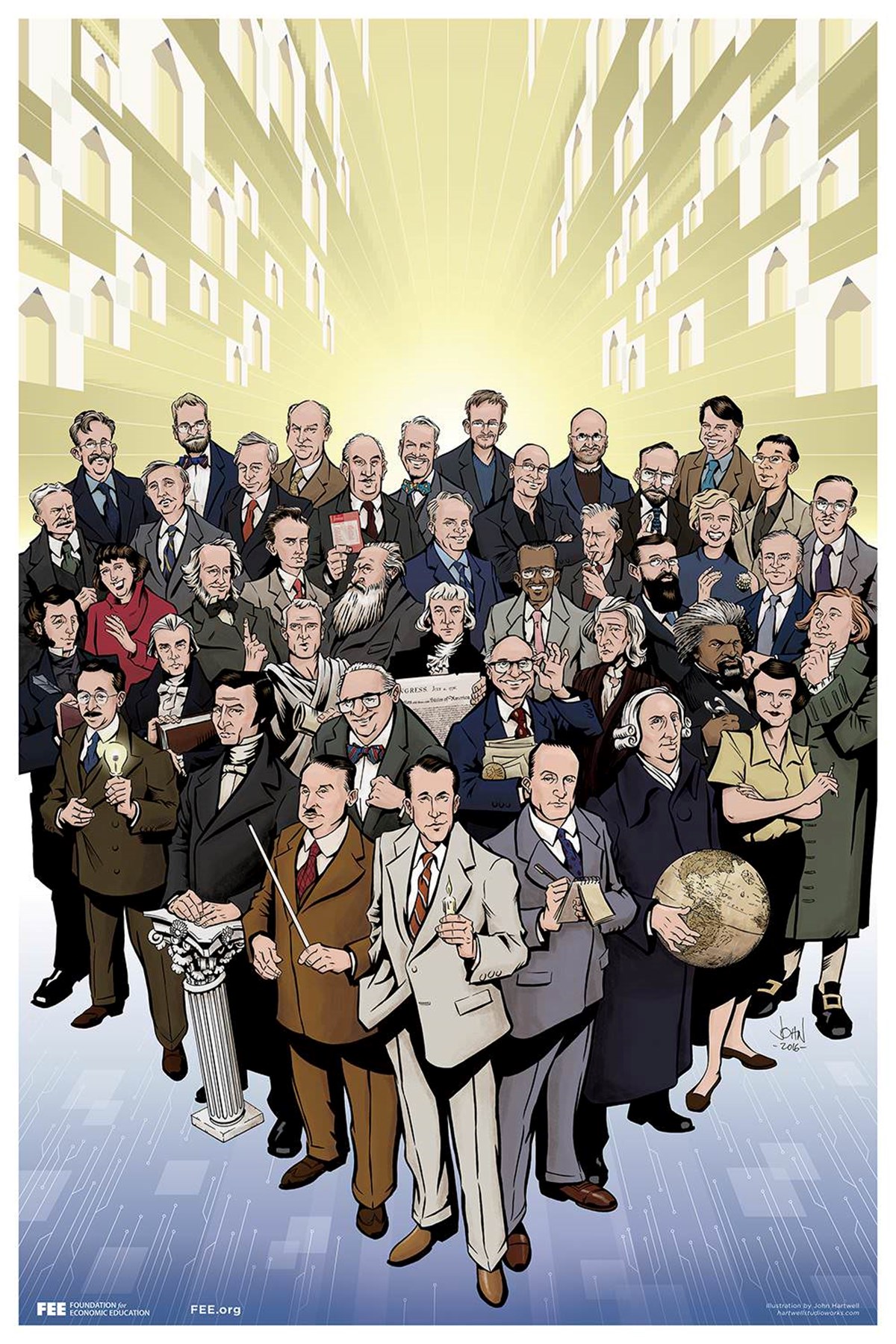Download:
There are certain seminal writings in the literature of liberty that everyone should read. They aren’t long, but they are essential. These include passages from Bastiat’s The Law, sections of Hazlitt’s Economics in One Lesson, Leonard Read’s classic “I, Pencil,” Hayek’s “The Case for Freedom,” and some other favorites. I have always wished for a single physical publication, beautiful and accessible, that included these selections.
You could call it a “starter kit,” but it would be better to call it a “lifetime survival kit,” because these pieces deserve to be read and read again. Life events (and politics!) continually take our attention away from core truths. We need time-tested written wisdom to help us steer our way toward a freer and more flourishing life.
How many times have I stood before audiences in need of fundamental material, and, in my mind, wished that this small publication existed!
Ta Da!
The Progressives: never before has an ideological group been so misnamed. At long last, it is here. Appropriately, it is the final issue of The Freeman, the illustrious publication that built the liberty movement in the United States and even the world. It is a fitting and brilliant tribute to the mighty intellectual work of the past, and the perfect launch to the new and exciting world of global digital distribution in the future. You could call it a “passing of the torch.”
I follow the data of FEE.org day by day. To watch the trends takes your breath away. This one portal reaches more people in a single day than the physical edition of The Freeman reached at its height in the 1960s in the course of an entire year. It is approaching a level of readership that competes closely with the most respected voices in public life today.
All of this would have thrilled our founder Leonard Read.It is a shame that the liberty perspective has been so outcompeted by the so-called progressives (never has an ideological group been so misnamed!) in the digital distribution of ideological content. The Foundation for Economic Education set out to do something about it, and we’ve been working hard to compete and win. It’s actually working, much to my delight.
In short, the distribution strategies of our time are finally working on behalf of the truth. And this necessarily means leaving methods of the past behind so we can focus on the future. As a reader of FEE.org, you see that happening every day. You share the content. You provide insights. You are helping to grow this community. All of this would have thrilled our founder Leonard Read.
I imagine those days in 1946 when Read and others gathered to do something about the state of the world, which was truly grim. Prices were controlled, the press was censored, business life was cartelized, and the military state had just unleashed its most hellish weapon on innocent civilians on the other side of the world. The world seemed like a dark place in so many ways. Could freedom return? This group had hope. They founded FEE to be the light in the darkness.
And so it has been. FEE began by supporting the publication of books and monographs, distributing material by great scholars, inspiring the creation of local meetups, holding lectures, and so on. Ten years later, Read decided to serve as the publisher of The Freeman, a publication that had been around since the 1920s. He converted the publication into the voice of genuine liberalism in the post-war era. His strategies were so creative that they influenced not just one generation but many.
Continuity
The Freeman was the voice of liberalism: free speech, free association, peace, pro-technology, pro-human rights, and so on.One day many years ago, I was scrounging around a dumpy used bookstore in Baltimore, Maryland, and found a book called The Freeman, edited by Albert Jay Nock. It was selections of the magazine from about 1920 to 1924. The typesetting was terrible, but it was an exciting book nonetheless. The Freeman was the voice of liberalism: free speech, free association, peace, pro-technology, pro-human rights, and so on. It was eccentric for sure, and touched on every subject. The main ethos of the publication was humane. It could be argumentative, but it was not rigidly ideological. The diversity of writers made an impression.
It’s a lovely book. I had it scanned. You can download it now. Thus does my own private treasure—a rare find in an unusual spot—become the possession of all of humanity, with one click.
Here we see the magic of the digital age. If you understand this, you understand why FEE has made this change.
It also strikes me as something extraordinary that the main features of the publication had been consistently maintained for nearly a century, through many dozens of editors and thousands of writers.
FEE.org aspires to do the same today.
Get Some
Let us never forget that the core of the work is intellectual and distributive.In any case, I’m nuts for the final issue. Here’s an idea. Consider buying 10 or 20 or 100 copies and keeping them around. You can hand them out to your friends and associates. You can leave them at the doctor’s office. Spread them far and wide. It is designed to be evergreen so that it can teach and inspire for decades to come. These pieces are all time-tested and filled with remarkable insight.
And, please, if you are not on the daily email, the best you have ever seen, for heaven's sake, sign up immediately.
My friends, we have so much work to do. Let us never forget that the core of the work is intellectual and distributive. The liberty that we seek can be won, but not through marches, rallies, songs, parades, and leaders. It happens quietly, beautifully, through the systematic philosophical change that happens one mind at a time.
When you think about it, we have every reason to be hopeful – so much more hopeful than that generation of 1946. The world is not nearly as dark. The lights are coming on. Let’s make them ever brighter so long as we are granted days in this world.

